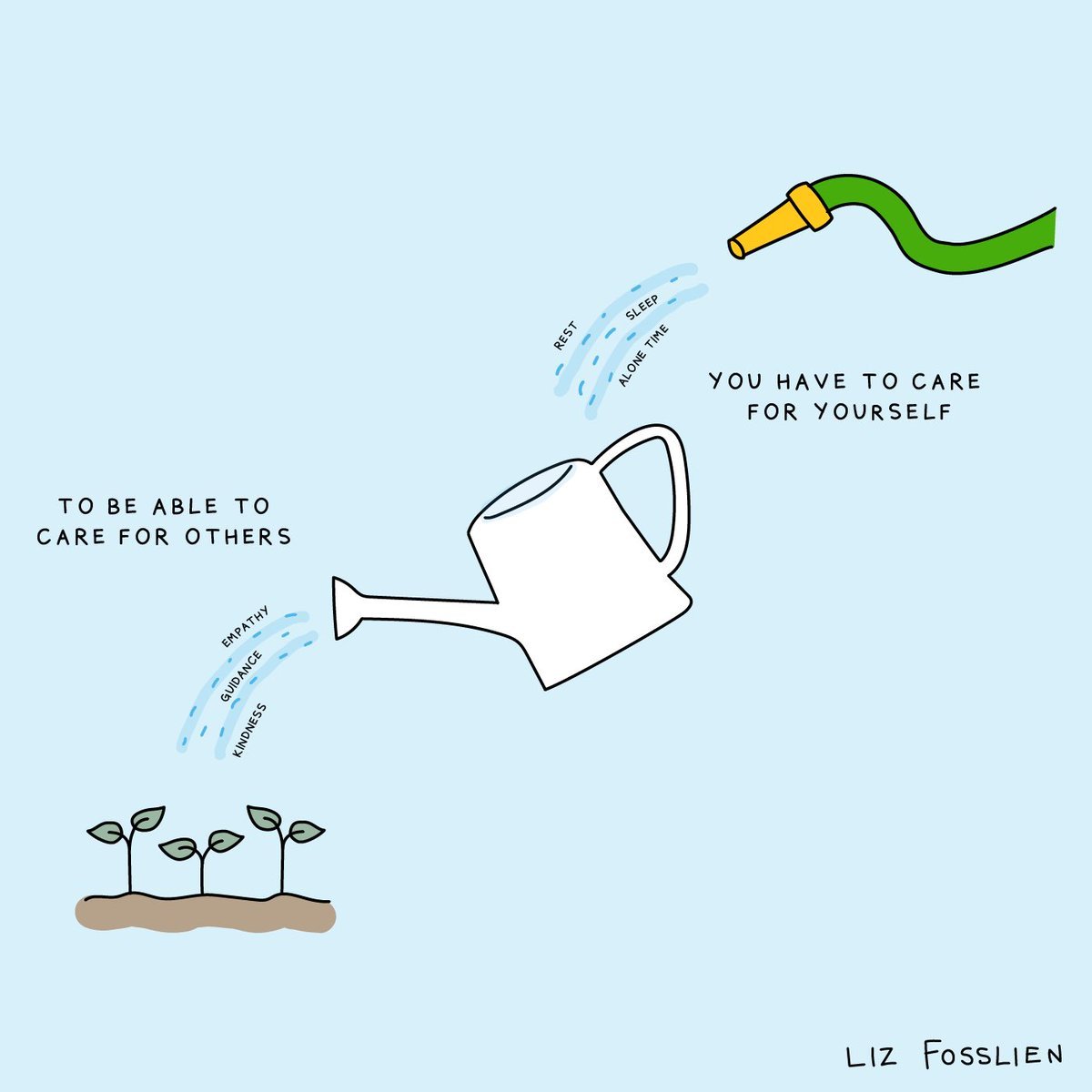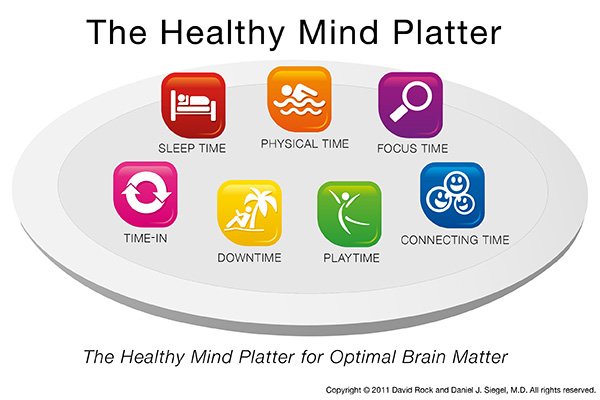The Healthy Mind Platter
Giving you ways to fill you own cup and reasons why that's important is one of the pillars for why I do what I do. Whatever phrase you use - putting on your own oxygen mask, topping up your battery, filling your bucket. If we aren't able to understand this, we can't really be there for those that need us - our teams, our colleagues, our communities. I've found it can be a hard lesson for those working in health to really step into. This is because of the drivers that have led many of us to the roles we are in - we are caregivers or those that like to help, fix or make things better. This can come with a need to sacrifice or a sense that others’ needs are more important than your own.
Care for others = care for yourself
I believe that I am there to serve and help others and I can't do that without looking after myself. I'm my best self for those that need me when I'm looking after myself. Notice the 'and'. This isn't a 'but', it's an 'and'. There is tension for sure, and that's OK. Using 'and' is how we build those two competing concepts together. The shift from the hero leadership style and the accolades of being so busy is occurring. We can do these tough jobs well, and look after ourselves and others..
One of the tools I’ve shared in the past and has come across my path more of more recently is the healthy mind platter is a set of seven activities that help keep your mind healthy. Created by David Rock and Dan Siegel in an analogous to the ideas of healthy eating and what food should fill your plate, this plate considers what it takes for your mind to be healthy.
Each element is important and a great way to understand this model can be to note how much time you spend each day on each of the factors. Or score yourself right now, out of 10 for how you feel about each one.
Doing this exercise sparks insight and awareness about ways that could round out how you look after yourself. A recent mentor client gained a great deal from the exercise, and while a little sceptical, branched out into some new hobbies for themselves and found an increased energy with their family and was able to create new opportunities at work.
The seven activities are all essential for optimal mental health in daily life and engaging every day makes a positive contribution to mental productivity. This article gives a thorough description of each element and the neuroscience that supports this model.
Sleep time: Refreshing mind and body and consolidating memory
Physical time: Moving or exercising our bodies, aerobically if possible
Focus time: High quality, single focus attention on a task in a goal-orientated way
Time in: Focusing on the present moment without judgement, including sensations, images, feelings and thoughts
Down time: Disconnecting, letting our mind wander, having no particular goal or focus
Connecting time: Being with others, ideally in person, in a way that makes us feel safe, secure and seen

























